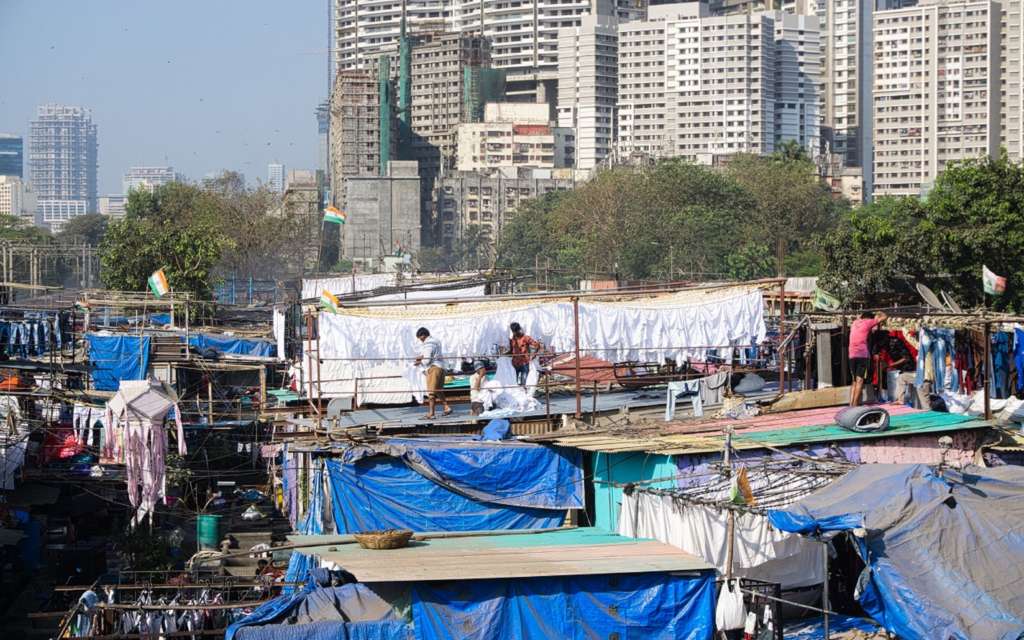The Commitment to Reducing Inequality Index (or CRI Index for short) is a joint project between Oxfam and Development Finance International. In 2016, we came together to look at how we could use our different strengths to arm activists and policy wonks alike with more information on how to better fight inequality across different countries – the CRI Index was borne out of that.
It was also borne out of our shared goal to end extreme inequality. The Index aims to show which policies can fight inequality; and by pushing governments (and international organisations which advise them) to implement them. We are already making progress – but there is much more to do.
Everyone acknowledges extreme inequality is disastrous – not just for the poor and the middle class, but for economic growth, social cohesion and the climate. But to end it, we have to go beyond showing that it is increasing, and demonstrate that this increase is not inevitable.
Inequality is a policy choice by governments, and we know what policies work best to fight it – universal free public services, progressive taxation and anti-inequality labour rights. The CRI Index is the first to analyse whether each government is using these policies to fight inequality. It aims to act as a beacon to show what to aim for, and to shine a light on areas where countries are doing too little.
But how do we make sure we are really having an impact, by changing government policy ? Here are a few of the highlights from our work since 2017….
The first way is to change the global debate, and we have been making a lot of progress on that. We’ve already helped to ensure the global development goals fight inequality better. We have pushed the UN to adopt tax and spending indicators which all governments will use to measure the impact of their budgets on inequality, as part of the Sustainable Development Goals. We also got the Addis Tax Initiative, which coordinates efforts to help countries improve tax collection, to adopt the CRI Index indicators to judge progress on progressive taxation. We also know that the IMF has been using the CRII in its country advice (for example in Morocco and Nigeria), and to train government officials on anti-inequality policies in its IMF Institute courses.
But much more needs to happen to put fighting inequality at the centre of global efforts. At the moment, most governments don’t have clear anti-inequality policy measures in their national strategies or government manifestos – partly because international organisations aren’t providing enough support. All the UN agencies (including the IMF and World Bank) need to get much better at providing advice to fight inequality, and at monitoring anti-inequality policies and outcomes. This year we will be working with the UN to identify what each agency can do to improve its performance.
The second is to influence governments directly. Some of this happens from media coverage at the global level: previous editions of the CRI Index had massive media and social media coverage, especially in Asia, and governments like Korea and New Zealand told us that this helped them to maintain support for progressive policies in the face of domestic opposition. So, we will be stepping up our global media push this year, including articles by the current head of Oxfam International and other supporters.
Governments also need practical examples of the best policies to fight inequality, and how they have worked technically and politically. DFI is using the lessons from the CRII research to support 20 progressive countries in identifying these policies on tax and spending, leading the fiscal policy work in the Grand Challenge on Inequality and Exclusion.
We have also found that regional and national reports and dialogues, using the CRI Index to show how well or badly governments are performing compared to their neighbours, can have powerful influence. As other articles on this page discuss, these have inspired governments in Burkina Faso, Sierra Leone and Vietnam to make anti-inequality policies prominent in their national development plans, and to act as regional leaders to promote change. We are going to be doing much more of this in future, with regional briefings written for South Asia, ASEAN and East Africa, and regional reports planned for the Pacific, Southern Africa, and the Middle East and North Africa.
Above all we know that it is the voices of the people – especially those suffering from inequality and exclusion – which will change policy. So, we’re increasingly working with people’s anti-inequality movements across the world, to magnify their voices and help them get the message across about which policies are most vital to fight inequality. For the 2020 CRI Index, DFI and Oxfam will be working closely with the Fight Inequality Alliance to ensure that the CRII has maximum impact at country level, by targeting 20 countries for in-depth launches and policy discussions, or popular mobilisations through People’s Assemblies to Fight Inequality, which will culminate in a Global People’s Assembly on October 10.
We won’t end the effort there. As the latest CRII report shows, COVID-19 is making inequality much worse, but also shaking governments out of their complacency and forcing them to think about new policies. So we will be continuing our efforts to ensure that the recovery from COVID fights inequality successfully, with a series of events involving the UN system, the IMF and World Bank, the G20, regional organisations, and funders and independent experts who can partner with governments to help refine anti-inequality policies, throughout 2020 and 2021.
We’re hoping the 2020 launch, coming in the middle of this most turbulent of years, is going to have the biggest impact yet. Because, frankly, it’s hard to think of a time when such radical change is both needed and (because we’re being asked to do so much differently), so many new possibilities are emerging – let’s hope that includes changing the face of extreme inequality.
